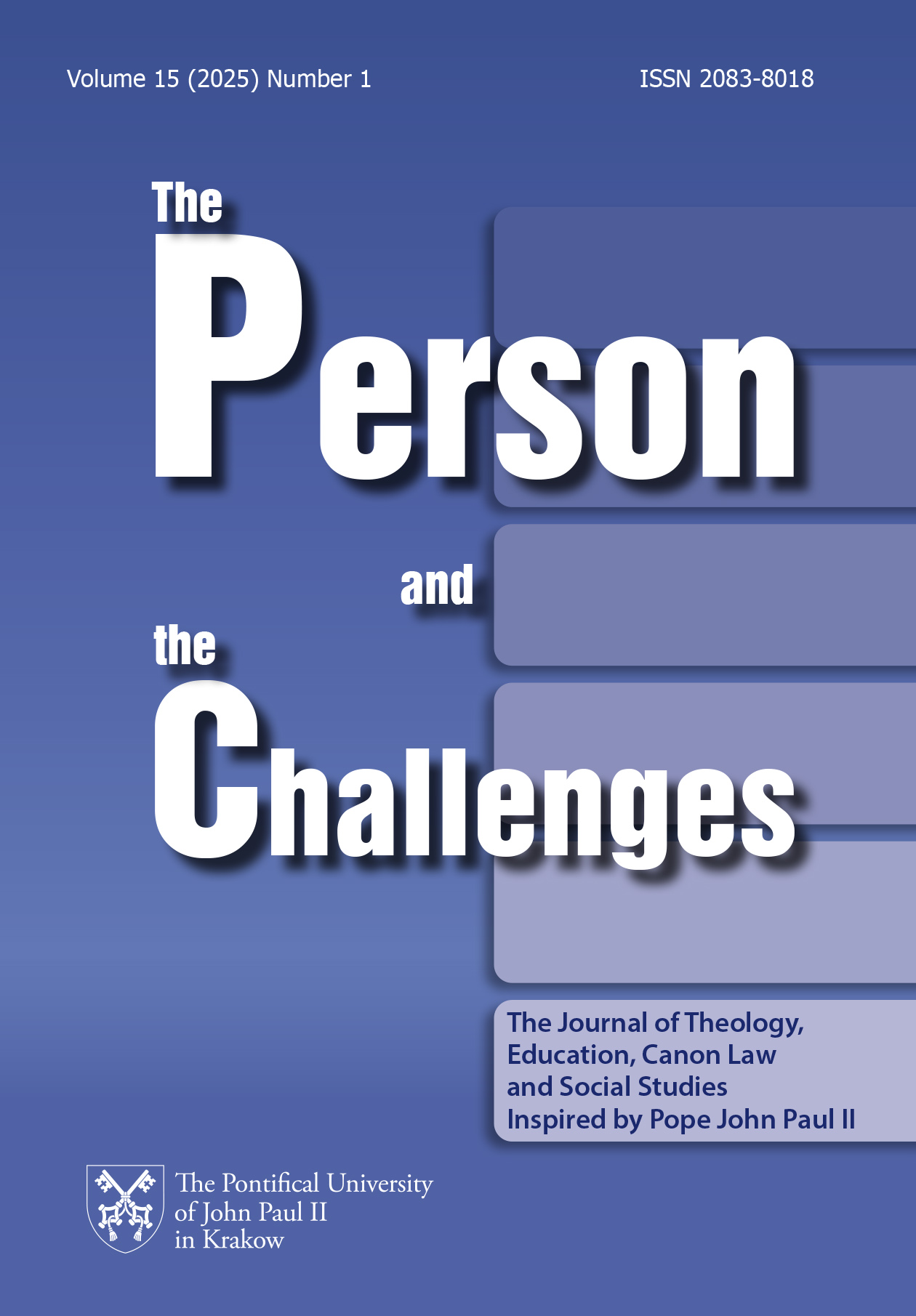The pursuit of the good life in the philosophical explorations of Immanuel Kant, Jean Nabert and Paul Ricoeur
DOI:
https://doi.org/10.15633/pch.15107Słowa kluczowe:
happiness, good life, good, evil, suffering, freedomAbstrakt
This article will present the concept of “good life” in the ethics of I. Kant and its criticism by the representative of the philosophy of consciousness J. Nabert and P. Ricoeur. The identification of the pursuit of the “good life” with the pursuit of happiness comes from Greek eudaimonism. In Kant, the achievement of happiness was reduced to obedience to the law. The source of evil is immorality, identified by him as disobedience to the law. The limitations and erroneous assumptions of this formalistic concept were demonstrated by J. Nabert and P. Ricoeur. Nabert accused Kantian ethics of using an abstract notion of freedom and not considering the inner experience. On the basis of Kant’s criticism, Nabert developed his own concept of evil as the unjustifiable and the possibility of overcoming evil through the desire for justification. Ricoeur, in turn, criticised, among other things, the Kantian reduction of all forms of emotionality to the sphere of desire, which closes the way to a meaningful discussion of happiness, suffering or evil. Moreover, he pointed out the flaws in the very reduction of happiness to the “good life.” Against the background of these remarks, we discuss the contemporary limitations of philosophical reflections on good and evil and happiness and unhappiness.
Bibliografia
Kant I., Critique of practical reason, transl. M. Gregor, Cambridge 1997, Cambridge University Press.
Kant I., Groundwork of the metaphysics of morals, transl. M. Gregor, Cambridge 2003, Cambridge University Press.
Klemm D. E., The hermeneutical theory of Paul Ricoeur. A constructive analysis, London, Toronto 1983, Bucknell University Press.
Nabert J., Essai sur le mal, Paris 1970, Aubier–Montaigne.
Nabert J., L’expérience intérieure de la liberté et autres essais de philosophie morale, Paris 1994, PUF.
Nabert J., Le désir de Dieu, Paris 1966, Aubier–Montaigne.
Ricoeur P., Freud and philosophy. An essay on interpretation, New Haven and London 1970, Yale University Press.
Ricoeur P., Towards a hermeneutics of the idea of Revelation, in: P. Ricoeur, Essays on Biblical interpretation, Philadelphia 1980, Fortress Press, pp. 73–118.
Ricoeur P., Fallible man. Philosophy of the will, Chicago 1965, Henry Regnery Company.
Ricoeur P., Oneself as another, Chicago 1992, University of Chicago Press.
Pobrania
Opublikowane
Numer
Dział
Licencja
Prawa autorskie (c) 2025 Władysław Zuziak, Barbara Żmuda-Frydrychowska

Utwór dostępny jest na licencji Creative Commons Uznanie autorstwa 4.0 Międzynarodowe.
Autorzy publikujący w czasopiśmie udzielają jego wydawcy zgody o następującej treści:
- Autor zachowuje autorskie prawa majątkowe do utworu, a jednocześnie udziela wydawcy czasopisma zgody na jego pierwszą publikację w wersji drukowanej i wersji online na licencji Creative Commons Uznanie autorstwa 4.0 Międzynarodowe oraz zgody na wykonywanie opracowań, w tym przekładów.
- Autor ma możliwość udzielania zgody niewyłącznej na opublikowanie utworu w wersji, która ukazała się w czasopiśmie (np. zamieszczenia go w repozytorium instytucjonalnym lub opublikowania w książce), wraz z informacją o jego pierwszej publikacji w czasopiśmie.
- Autor może umieścić swój utwór online (np. w repozytorium instytucjonalnym lub na swojej stronie internetowej) jeszcze przed zgłoszeniem utworu do czasopisma.

